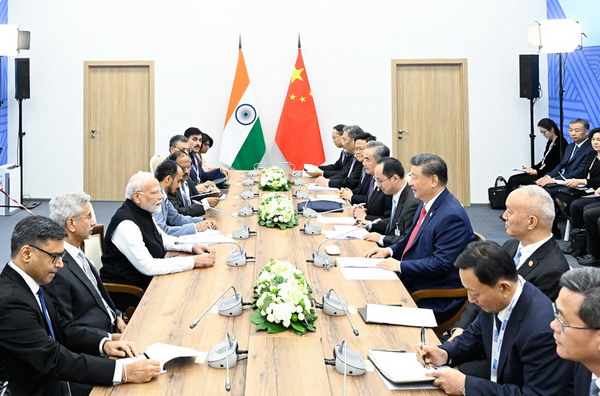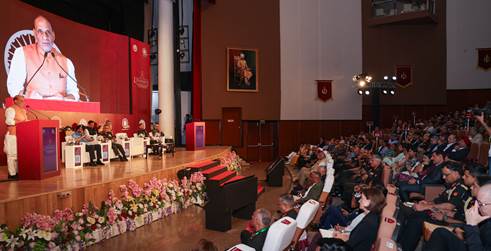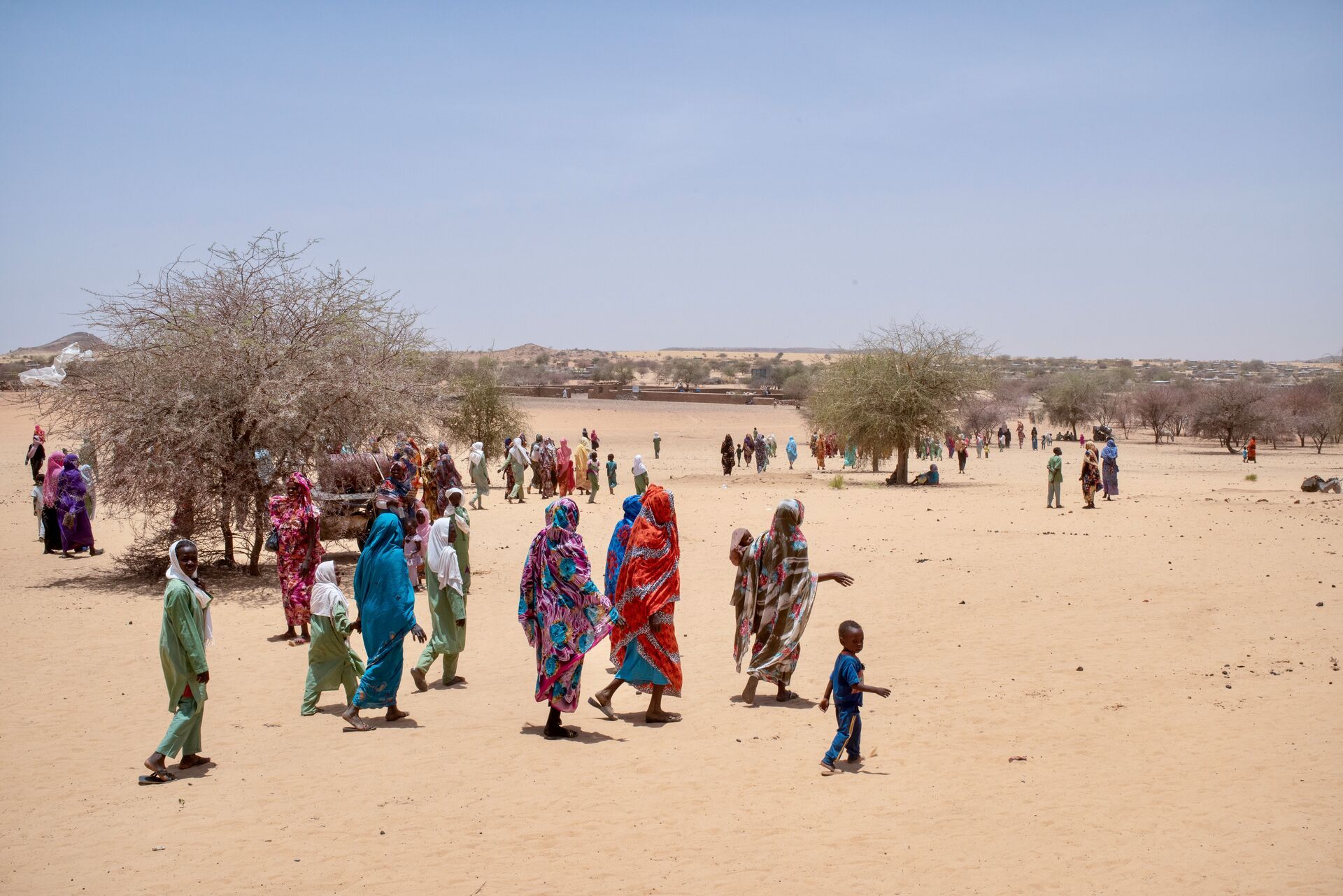
Xi Jinping and Narendra Modi hold meeting in Kazan
New Delhi/Kazan: The broad India-China consensus to resolve differences in certain areas along the Line of Actual Control (LAC) is proof that continuous dialogue brings solutions, Indian Defence Minister Rajnath Singh said here today at the Chanakya Defence Dialogue 2024. The event featured prominent speakers from India and countries such as the United States, Russia, Israel, and Sri Lanka.

Singh’s statement came after Indian Prime Minister Narendra Modi met with Chinese President Xi Jinping on the sidelines of the 16th BRICS Summit at Kazan, yesterday.
During the meeting in Kazan (Russia), the two leaders commended the “important progress” the two sides had recently made through intensive communication on resolving the relevant issues in the border areas. Modi welcomed the recent agreement for complete disengagement and resolution of issues that arose in 2020 in the India-China border areas. The two leaders agreed that the Special Representatives on the India-China boundary question would meet at an early date to oversee the management of peace and tranquillity in border areas and to explore a fair, reasonable and mutually acceptable solution to the boundary question. The relevant dialogue mechanisms at the level of Foreign Ministers and other officials will also be utilized to stabilize and rebuild bilateral relations. Prime Minister Modi made suggestions on improving and developing the relationship, which President Xi agreed to in principle. Xi stressed that China-India relations were essentially a question of how the two large developing countries and neighbours, each with a 1.4-billion-strong population, treat each other.
President Xi pointed out that as time-honoured civilizations, large developing countries and important members of the Global South, China and India both stand at a crucial phase of their respective modernization endeavours. “It is in the fundamental interest of our two countries and two peoples to keep to the trend of history and the right direction of bilateral relations. The two sides should strengthen communication and cooperation, enhance strategic mutual trust, and facilitate each other’s pursuit of development aspirations. The two countries must also shoulder their international responsibility, set an example in boosting the strength and unity of developing countries, and contribute to promoting a multipolar world and greater democracy in international relations,” Xi said.
Indian Defence Minister Singh today asserted that the two countries have been involved in talks at diplomatic and military levels, and broad consensus has been achieved to restore the ground situation based on the principles of equal and mutual security. “This is the power of engaging in continuous dialogue,” he asserted.
Sharing his insights on the topic ‘India’s Vision for Development & Security’, Singh stated that ‘development’ and ‘security’ are often viewed from separate perspectives, but are, in actuality, deeply interconnected & mutually reinforcing. “Historically, the study of key factors for economic development such as land, labour, capital and entrepreneurship have been central to economic analysis.
“The impact of defence and security has traditionally been under-explored. This may be because security is often viewed as a necessary but non-economic factor. Defence spending, military infrastructure and national security can significantly affect economic growth and resource allocation, even in non-war periods or in peacetime,” he said.
Stressing that economic development can only flourish when national security is ensured, Singh said the vision of border area development is based on bolstering the security apparatus and ensuring the socio-economic progress of the regions. This, in turn, fosters economic growth, he stated.
– global bihari bureau





